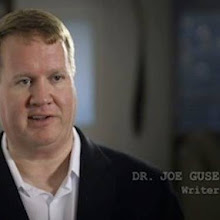Synchronistic events offer us perceptions that may be useful in our psychological and spiritual growth and may reveal to us, through intuitive knowledge, that our lives have meaning.
Jean Shinoda Bolen
After the death of my friend I received a letter from one of his good friends who I did not know. She said something that really struck me and I haven’t been able to get it out of my head ever since. She said “Sam's death will make just as much of an impact as his life did.”
That one sentence summed up so eloquently everything I’m trying to get my head around right now. The chain of events all of our significant actions (and many of our seemingly insignificant ones) set in motion. I am paying so much more attention now, as I am starting to observe where I once turned a blind eye.
One explanation as to why we turn this blind eye is that we are simply too busy to go around noticing coincidences and paying attention to mystic omens in our lives. Joseph Campbell, a great believer in synchronicity and a kind of disciple of Carl Jung, referred to this as “the refusal of the call.’ He explained that,
“The Refusal of the summons converts the adventure into its negative. Walled in boredom, hard work, or 'culture,' the subject loses the power of significant affirmative action and becomes a victim to be saved. His flowering world becomes a wasteland of dry stones and his life feels meaningless. All he can do is create new problems for himself and await the gradual approach of his disintegration."
In essence when we refuse the call, we are trying to avoid the suffering that taking risks may bring, but in this avoidance we bring another kind of suffering on ourselves. Jung said, “Nobody, as long as he moves about among the chaotic currents of life, is without trouble.” All of us will grow old, get sick, lose loved ones, and die.
So although that sounds rather morbid, perhaps by truly seizing this adventure we can beat back the mundane, the boredom, the pain, the illness, and all the rest of it for the short time that we have been given. Hemingway talked about making love as “beating back death” and I think that’s a good metaphor for life’s grand adventure.
So all of this leads me back to the idea that my friend may have as much of an impact in his death as he did in his life. Something about his dying sent a little existential shock wave into my life that I haven’t been able to fully comprehend. Part of this came from contemplating my own mortality. Whenever someone close to us dies, at least some of the grief we feel is thinking about the fact that one day we will be gone as well. One quote that always reminds me of this comes from J. Furniss who reminds us,
“Never forget that you must die; that death will come sooner than you expect... God has written the letters of death upon your hands. In the inside of your hands you will see the letters M.M. It means "Memento Mori" - remember you must die.”
I’ve always loved that quote but I’ve rarely lived that quote. Until recently I’ve really felt a creative spark that was ignited by my friend’s death. I haven’t done comedy in years. My writing has very much been on the shelf for the last couple of years, but now, well, I have been massively creative. But why? What was it about someone dying that lit this fire?
I do know that I saw the outpouring for my friend when he died, and I thought to myself, what is the secret to being remembered like this? What are the qualities of this kind of life? What does it look like?
And I kept coming back to overcoming fear. My friend was pretty fearless, and whatever energy he left behind, I know I somehow absorbed a lot if it. Perhaps that is what the afterlife really is. The goodwill, laughter, friendship and wisdom you leave behind becomes a kind of energy that those you left behind can use as they wish. That’s what it means to me anyway, and I’ve been getting some daily reminders of how this is true..
15 years ago















No comments:
Post a Comment